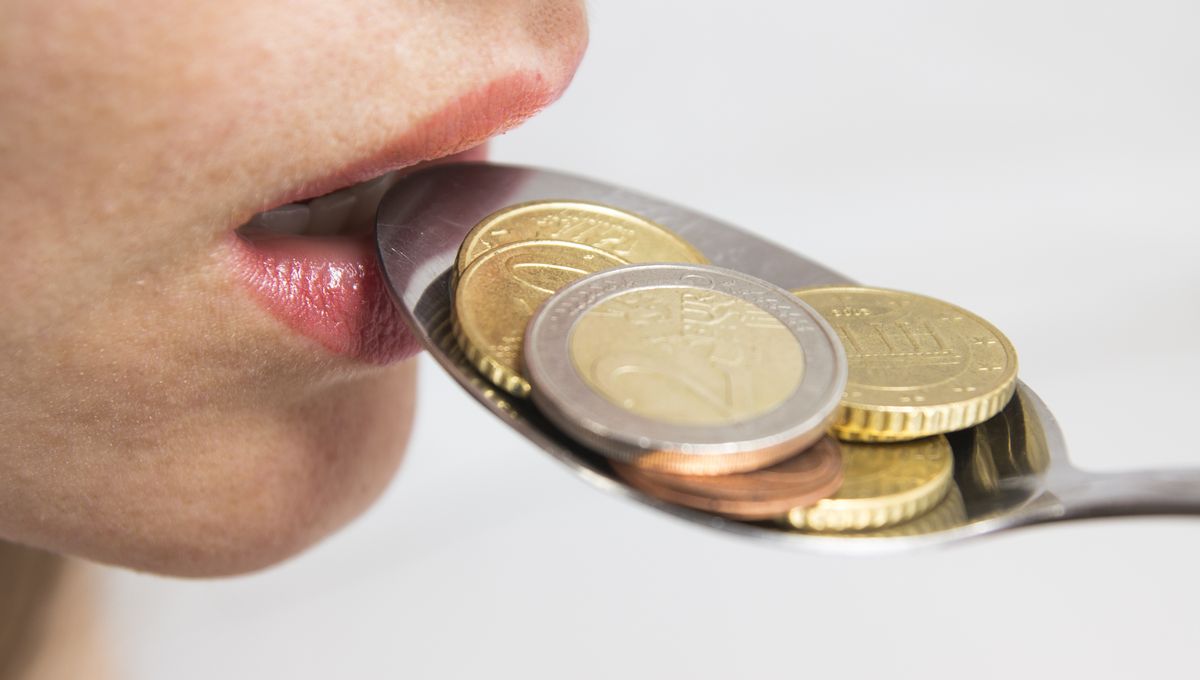
Hopefully, you’ve never eaten any chunks of metal or chowed down on a coin, but you’ll no doubt have an idea of what metal tastes and smells like: musty, tangy, and sharp. We’re here to inform you that metal doesn’t actually have an innate odor; that aroma is basically a body odor.
ADVERTISEMENT GO AD FREE
The smell we associate with being metallic is, in fact, largely the result of oils in the skin breaking down upon making contact with metal. If you gather a pile of old coins and give them a whiff, that distinctive scent is the product of other people’s sweat and skin oils interacting with the metal. Yum.
This factoid is nicely highlighted in a small study published in 2006 titled “The Two Smells of Touched or Pickled Iron (Skin) Carbonyl-Hydrocarbons and Organophosphines.”
In the experiment, seven people reported smelling an “immediate musty metallic odor” when their skin touched metallic iron, as well as Fe²⁺ solutions that had been moistened with artificial sweat. However, they did not register the smell when sniffing pure ferric (Fe3+) solutions without the sweat.
“Ironically, the iron odor on skin contact is a type of human body odor,” the study authors write.
The researchers went on to pinpoint the specific volatile organic compounds that were linked to the metallic odor and taste, such as octeneone (also known as oct-1-en-3-one or amyl vinyl ketone), a chemical said to have a metallic mushroom-like scent.
“We are the first to demonstrate that when humans describe the ‘metallic’ odor of iron metal, there are no iron atoms in the odors. The odors humans perceive as ‘metallic’ are really by-products of the metals reacting with skin or impurities in the metal itself,” Andrea Dietrich, an expert in environmental and water resources engineering at Virginia Tech, said in a 2006 statement.
ADVERTISEMENT GO AD FREE
“The fact that iron metal produces a whole host of ‘smelly’ organic molecules when humans touch it or acid attacks it was unexpected,” added co-author Dietmar Glindemann.
The same might explain why blood leaves a strange, metallic taste in your mouth. This sensation is partly due to hemoglobin, an iron-rich protein that carries oxygen and gives blood its red color. However, the taste primarily results from compounds produced when the iron interacts with your saliva and other bodily fluids.
We seem to be very good at sniffing out these compounds. The researchers of the 2006 study said that people can smell concentrations of octeneone as low as 5 parts per trillion, suggesting that humans might have evolved to be super-sensitive at detecting this compound.
This heightened ability to detect octenone – a key indicator of blood in the air – could have played a critical role in alerting humans to injuries, predators, or prey, ultimately enhancing their chances of survival.
Source Link: Why Does Metal Smell Tangy? It Doesn't, That's Just Your Body Odor